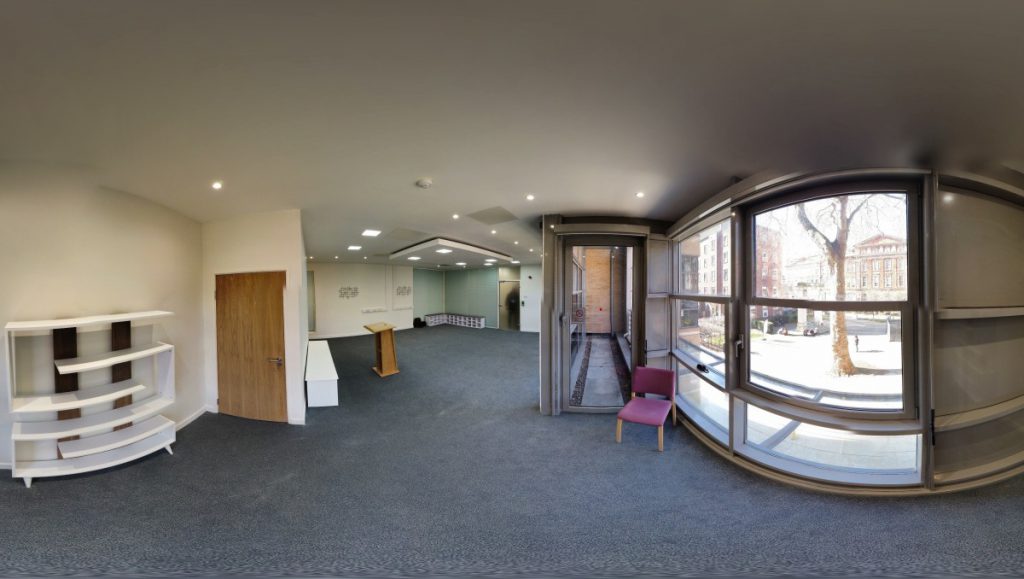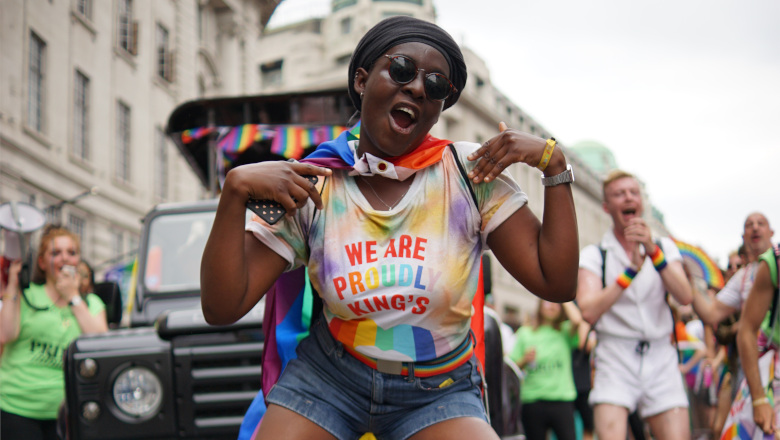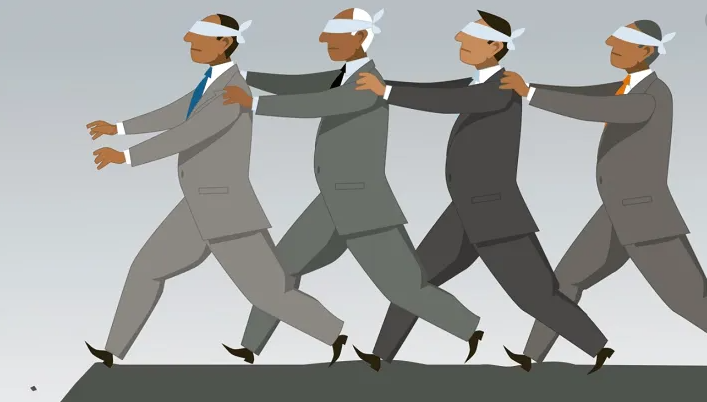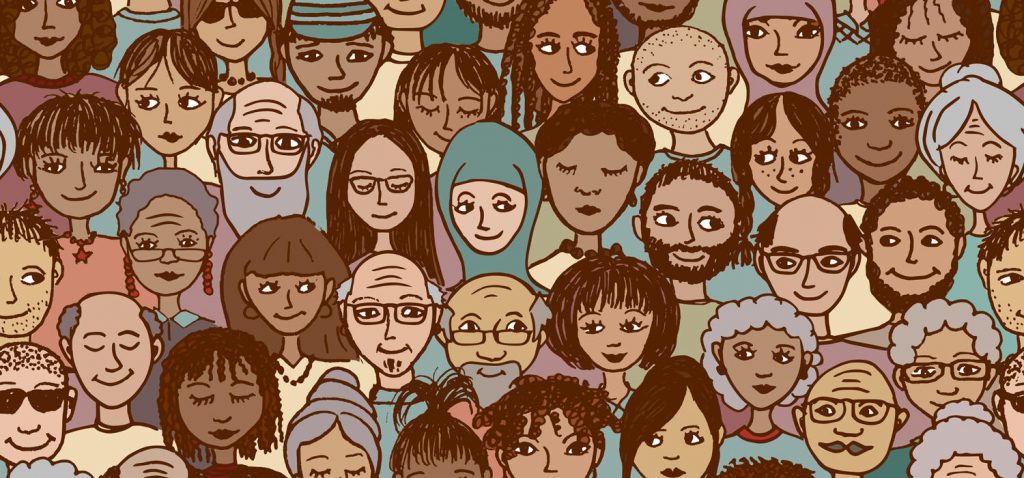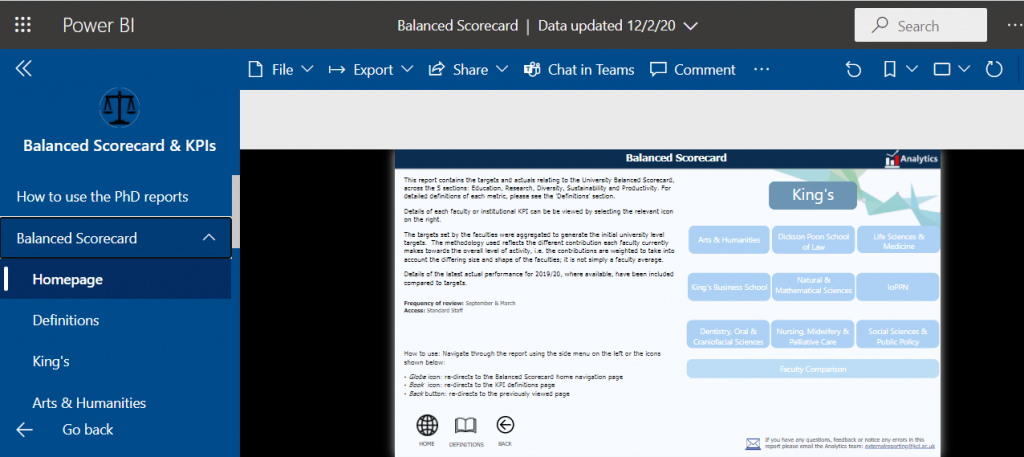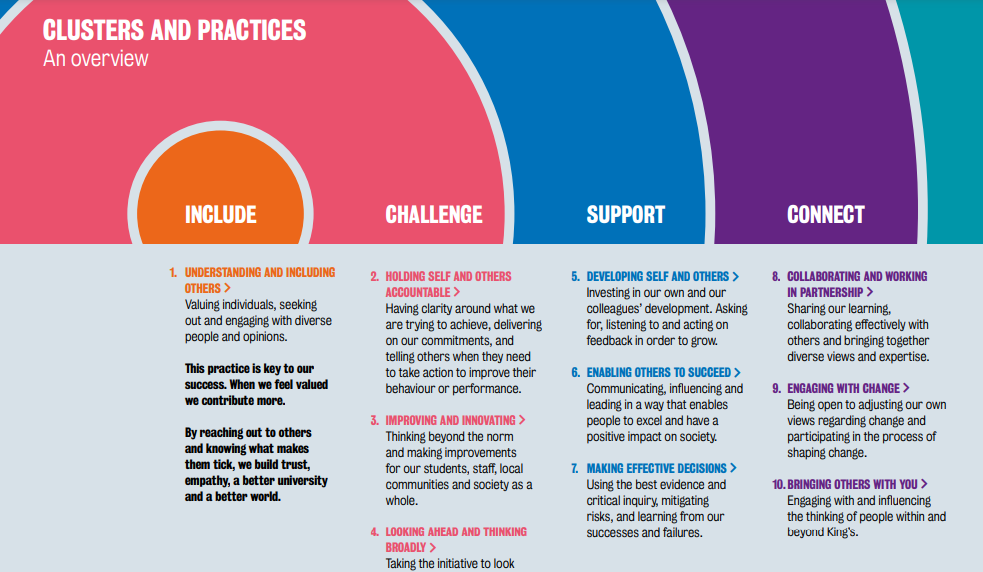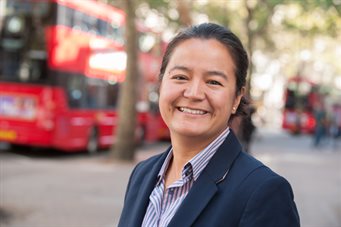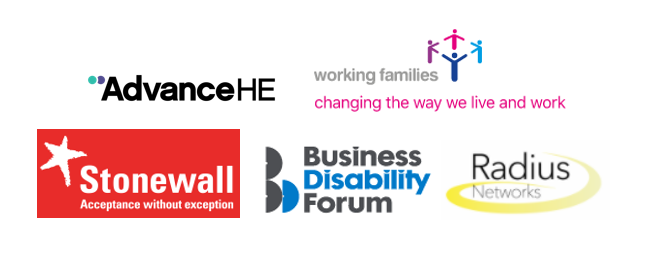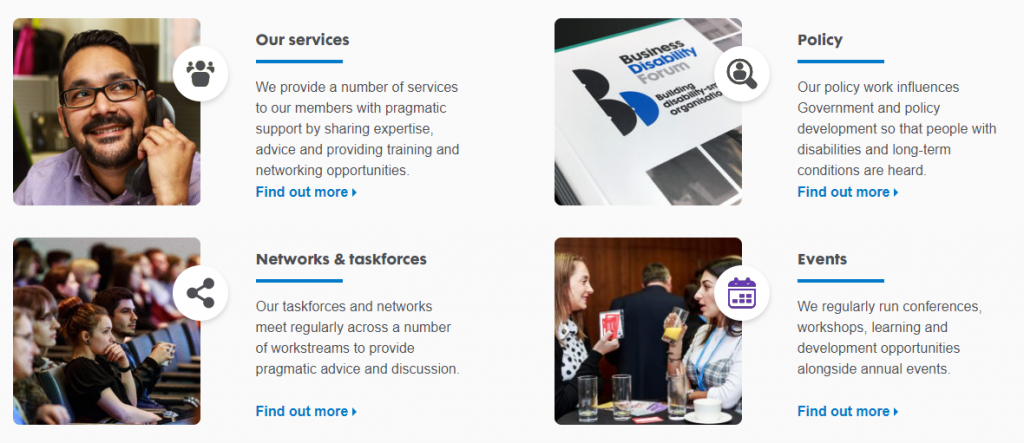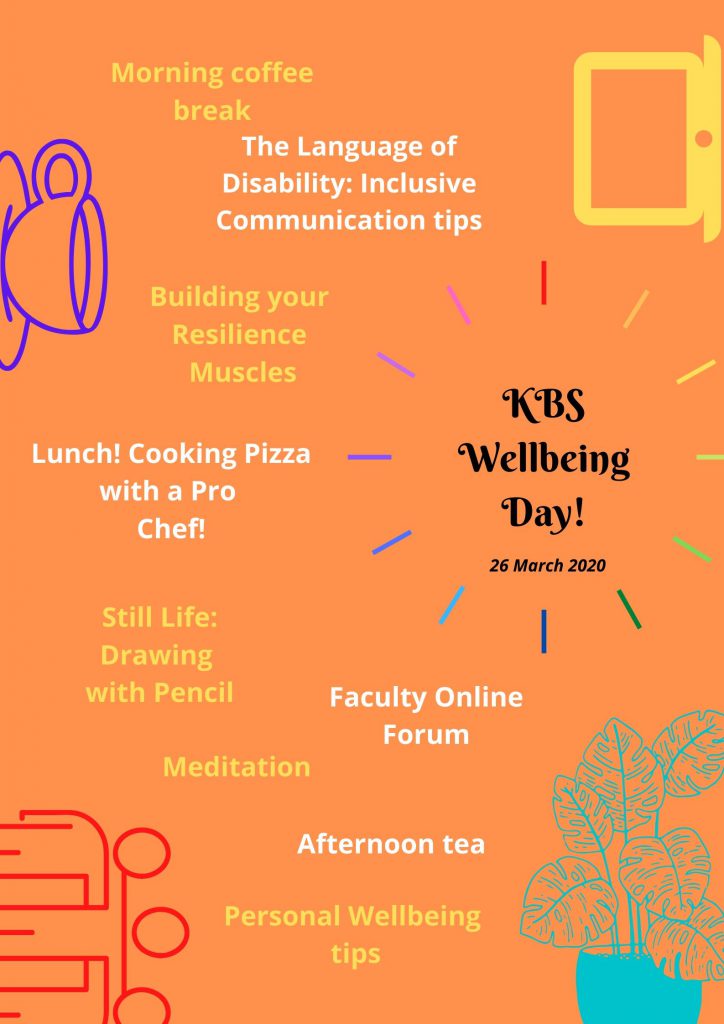Foreword from Professor Richard Trembath (Provost/Senior Vice President (Health)), John Darker (Access King’s Co-Chair), and India Jordan (Equality, Diversity and Inclusion Consultant)
We are delighted to announce that Richard Trembath (Provost/Senior Vice President (Health)) has been appointed as the Disability Inclusion programme’s senior sponsor. Within EDI we have a variety of sponsors and champions –
- Professor Sir Edward Byrne, President & Principal – sponsor of equality, diversity & inclusion across the College
- Professor ‘Funmi Olonisakin, Vice President & Vice Principal (International) – sponsor of our work on Race Equality and the Race Equality Chartermark
- Professor Evelyn Welch, Professor of Renaissance Studies, Provost/Senior Vice President (Arts & Sciences) – sponsor of our work on Gender Equality and Athena
We believe that sponsors are instrumental in driving institutional change. Having a senior sponsor and champion for this work demonstrates King’s commitment to improving disability inclusion.
We are very excited to begin working with Richard in ensuring that disability inclusion is included in decision-making processes and structures within King’s. He will be an advocate for disability inclusion, protect and positively drive disability inclusion activity, and act as a role model for the organisation for an inclusive workforce.
Richard says: I am delighted to have the opportunity to act as senior sponsor for disability inclusion. It is timely to highlight and ensure that King’s is at the forefront on development and delivery across the breadth of disability inclusion, from policy to implementation. My professional background as a clinician within the specialty of genetics, has provided significant opportunity for me to learn much of the impact of disability and of the benefits of inclusion, as means of enhancing wellbeing and enabling achievement.
Alongside a senior champion for our program of work, Access King’s highlight the importance of senior sponsorship within staff networks. John Darker (Access Co-Chair) explains:
The role of a community network Senior Champion at King’s is a very important one, and includes being a strong advocate for the network, whilst informing senior colleagues about its work and the benefits it affords the University. This year, Access King’s, the Staff Disability Inclusion Network at King’s, was pleased to announce that Dr Renuka Fernando had joined the Network as its Senior Champion. Dr Fernando has proactively supported Access King’s, championing for disability inclusion at senior meetings including the review of Return to Campus policies. Dr Fernando works with the Network’s Co-Chairs and its Committee to help progress its aims and goals.
Equality, Diversity and Inclusion Consultant, India Jordan, provides us with an update on the disability inclusion program of work so far, and plans and ambitions for this work as our next priorities.
Disability Inclusion at King’s – How far have we come, and how far have we to go?
At King’s, we are committed to disability equality and inclusion so that people with disabilities and those with long–term conditions are included and feel valued, and so that barriers are understood and overcome. Over the last 3 years, we have been developing and implementing a programme of work to support this. India Jordan, Equality Diversity and Inclusion Consultant within the EDI Sub-Function, reflects on our progress so far and our plans and priorities for the future.
UK Disability History Month is in its 10th year this year and the theme is ‘Access – how far have we come? How far have we to go?’ These are useful questions to help us reflect on King’s disability inclusion journeys.
So, how far have we come?
Sarah Guerra, the Director of Equality, Diversity and Inclusion, identified disability inclusion as a key priority when starting at King’s in 2017, and so work has been underway to develop this area since then. In 2018/19 a Disability Action Plan and Maturity Model were developed to prioritise and focus disability inclusion work within King’s. The plans were developed in consultation with the King’s Community and the Business Disability Forum (a membership organisation working to remove structural barriers for those with disabilities and long–term health conditions), as part of a Disability Self-Assessment process.
The action plan focuses on four strategic areas:
- Leadership, Governance & Culture
- Policy, Process & Procedure
- Local Experience
- Data, Outcomes & Evaluation
Each of these 4 pillars cover areas in King’s that we know need to be developed for structural inequality around disability inclusion to be addressed. We need to have a holistic approach to tackling the issues. We know we need senior leadership buy–in, effective processes, maturity around data collection and evaluation, as well as ‘on the ground’ knowledge, skills and experience for us to progress as an institution in supporting those with disabilities and long-term health conditions.
Alongside the Action Plan, the King’s Disability Inclusion Maturity Model was developed. The model comprises four levels of maturity, from ‘basic’, ‘reactive’, ‘proactive’ to ‘innovative’ and includes the same strategic strands as the Action Plan. This helps everyone understand what best practice looks and feels like in reality and the action we need to take to reach the highest level of maturity.

In 2020 Equality, Diversity and Inclusion Consultant India Jordan reviewed our progress against the maturity levels. From this assessment, it is clear we have made significant progress in areas relating to Leadership, Governance and Culture and Policy, Process and Procedure, moving from Level 2 ‘Reactive’ (based from our initial assessment in 2019), to Level 3 ‘Proactive’. Some of the improvements include:
- Under the Leadership, Governance and Culture pillar, we have appointed a Disability Inclusion Senior Sponsor – Richard Trembath (Provost/Senior Vice President (Health)). Richard’s role is responsible for steering, promoting and championing progress of this work amongst the senior leadership. He’ll be advocate for disability inclusion, protect and positively drive disability inclusion activity, and act as a role model for the organisation for an inclusive workforce.
- There is clear ‘board-level’ – in our case that’s Senior Management Team buy–in and commitment through committees such as the Digital Accessibility Programme Board, the Digital Education Task and Finish Group, and through our governance structures. This means that now, disability is represented as a part of King’s diverse identity and there is a demonstrable commitment to inclusion.
- Under the Policy, Process and Procedure pillar, we have developed our work on Equality Analysis. For example, the Equality, Diversity and Inclusion Team recently reviewed Equality Analyses for disability-related impacts and considerations, best practice and areas for development, specifically in relation to the pandemic. This, alongside the Equality Considerations Report, is used and highly encouraged when considering all new projects across the university.
- Under the Local Experience pillar, we have developed resources and guidance that is available for all, such as the Disability Toolkit and the Accessible Guidance for Content Creators.
- We are working to go ‘beyond compliance’ using inclusive design principles in consultation with service users such as our Access King’s Network, on projects such as the HR Transformation.
Key to this progress, awareness and engagement of disability inclusion has been our newly formed Access King’s Network. Only 1 year old, Access King‘s has seen a huge increase in membership and engagement, running events throughout the year from a discussion panel on leadership, to online events on how to run accessible and inclusive meetings. Access King’s have recently fed into the Return to Campus work by developing the Inclusive Badges project, a great example of the power of networks and community in driving institutional change.
The value of our networks is more important than ever, at a time when we are more isolated from our peers – finding community to share experiences and support each other is crucial. To get involved with Access King’s and to find out more about their events being run over Disability History Month, head to our webpage.
…and how far do we have to go?
Given the unprecedented events of 2020, the Disability Action Plan has developed in many ways. Digital Accessibility has become a priority for the College, particularly within the learning and teaching sphere. This will continue to be a priority for us as we support through various boards and working groups and updating and developing our Accessible Guidance for Content Creators.
Alongside digital accessibility, our priorities are to work collaboratively and inclusively through forming a Disability Inclusion Steering Group. This, in collaboration with our senior sponsor, will create action and hold people to account, ensuring all areas of King’s take responsibility for embedding disability inclusive practices. It is crucial we have support from our senior leadership, we need clear accountability and governance of the Disability Action Plan; with leaders knowing what is expected and required of them, which is why it is very exciting to be working with Richard Trembath on this project.
Alongside the formation of a working group, we know from the work we have done that the following areas of work need to be a priority in the coming 12-18 months:
- Improving our adjustments process, including the development of a Staff Passport Scheme
- Building capability and confidence amongst managers through guidance, resource and training
- Continuing to support HR Recruitment, working closely on the selection and onboarding processes
- Ensuring our online and physical spaces are accessible to all
It is important to reflect on our progress and celebrate our successes, but it is also important that we recognise where we need to improve and plan for us to be able to effectively do that. We want to reach the highest levels of maturity, we want to be a leader of best practice for disability inclusion for HE and most importantly, we want our staff and students to feel that there are no barriers to their being their very best whilst at King’s.
It is hard to predict what the world will look like this time next year and undoubtedly we will face more change and challenges as we acclimatise to our new reality. However, we know that the changes and developments outlined above will enable us to move through and adapt to them more effectively and sustainably. The unique circumstances of 2020 have given us insight to a more accessible and inclusive world we believe is possible and we will continue to embed these practices, so they are not the exception, but rather the norm.
How can you get involved?
If you are interested and passionate about disability inclusion within King’s and want to make a difference within this area, join our disability inclusion staff network – Access King’s. They are hosting a range of events over Disability History Month and have regular monthly drop-ins.
